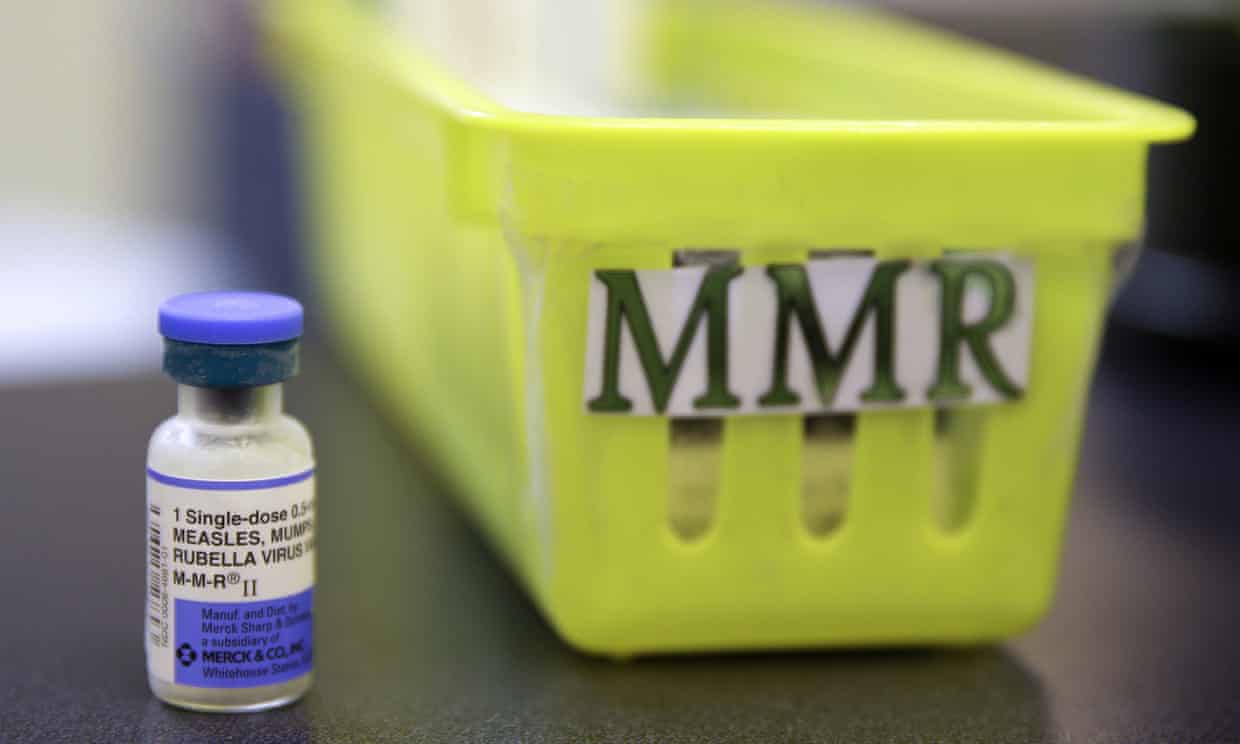
MMR
Young people in England urged to have MMR vaccine following mumps surge
Public Health England says fivefold increase partly down to ‘Wakefield generation’ who missed out on vaccine
by Sarah BoseleyExperts are calling on young people to ensure they have had the MMR vaccine, following a big surge in mumps cases among what Public Health England (PHE) is calling “the Wakefield generation”.
Last year there were nearly five times as many cases of mumps as the year before – 5,042 lab-confirmed cases as opposed to 1,066 in 2018, said PHE. The trend is continuing, with 546 new cases last month, compared to 191 in January last year.
Most outbreaks have been in colleges and universities. “Many of the cases in 2019 were seen in the so-called “Wakefield cohorts” – young adults born in the late 1990s and early 2000s who missed out on the MMR (measles, mumps and rubella) vaccine when they were children,” said PHE in a statement.
Many parents, especially in London, did not take their children for the two shots of MMR vaccine at the ages of 1 and nearly 4, because of the scare around a paper in the Lancet journal by gastroenterologist Andrew Wakefield and colleagues in 1998. The research focused only on a small number of children who had bowel disease and autism, but Wakefield made a link with the MMR vaccination, wrongly claiming that it could “overload” the immune system.
Although the paper was retracted as wrong and Wakefield was later struck off the medical register, his comments caused a furore and undermined confidence in the vaccine.
Outbreaks of measles, including some deaths, have swept Europe and the US in recent years as a result of vaccine hesitancy, partly because of the anti-vax rhetoric that Wakefield’s discredited theory still inspires.
The mumps cases are among the generation who were sometimes not vaccinated or were only given one dose when they were small children. But experts said there was an additional reason why mumps cases might be rising.
“The mumps component of the MMR is less effective and the protection is known to wear off,” said Dr David Elliman, consultant in community child health.
Helen Bedford, professor of child public health at UCL, said the large number of cases was of concern. “These are mainly occurring among older teens and young adults who either had no doses of MMR vaccine when they were young or only had one dose. However, we also know that the immunity from mumps vaccine can wane over time. This means you can still get mumps even if fully vaccinated; although mumps can be nasty especially in people past puberty, it is usually much milder in previously vaccinated people, so the best way to avoid mumps is to get the vaccine.”
Mumps used to be a common viral infection. It causes painful swelling of the glands at the side of the face, which may be preceded by headaches, joint pain and fever. In rare cases, it can cause meningitis, deafness and infertility.
PHE urged young people to have the vaccine if they were in any doubt. “The best protection against mumps and its complications is to have two doses of the MMR vaccine. It’s never too late to catch up,” said Dr Vanessa Saliba, consultant epidemiologist at PHE.
The health secretary, Matt Hancock, said anyone in any doubt as to whether they had been vaccinated should contact their GP. “The rise in mumps cases is alarming and yet another example of the long-term damage caused by anti-vax information,” he said. “Science proves that vaccines are the best form of defence against a host of potentially deadly diseases and are safer and more effective than ever before. Those who claim otherwise are risking people’s lives.”